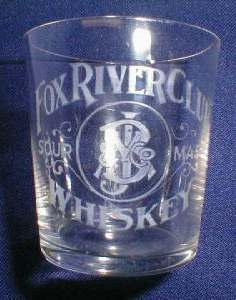The Internet has been compared to the wall of a
public restroom--anybody can write anything that he or she wants to on
it, and therefore, you can’t always believe what you see written there.
My twin brother is a reference librarian for a university in Virginia,
and he constantly bemoans the fact that college students today want to
do all their research on the Internet.
|
He explains in his classes that only a tiny fraction of the world’s
information is online, and much of that is questionable. How do you
know what is true, what is someone’s opinion, and what is simply
make-believe? |
|
eBay, the Internet, and Glass Research |
|
I spent almost six years
researching and writing a book on the cause of the Great Chicago
Fire. My bibliography includes hundreds of sources, and none of them
were (or are) on the Internet. An Internet website is only as good (and
reliable) as the source of the information on that site. When you don’t
know who put together the website or where he or she got the material
that is on the site, how useful is that information? What they say on
that television program, "The Antique Roadshow," also applies to the
Internet--provenance is everything.
But having said all this, I hasten to add that the Internet does have a
superlative research use. It is without peer in providing a quick means
of checking facts. Indeed, the Internet is the ultimate library
reference desk. For example, I am now working on a book about the
infamous Chicagoan, George Wellington "Cap" Streeter and the history of
his "Streeterville." Streeter was in the Civil War, and I am currently
trying to reconstruct his career as a member of Michigan’s 15th
Infantry. When I wanted to verify the date of the Battle of Missionary
Ridge, I could have gotten out of my desk chair and consulted a
reference book. But instead, I did a quick search on
Google and found the answer in
seconds.
| The powers of the Internet can
be extremely helpful to one who buys shot glasses on eBay. For
example, this Fox River Club Whiskey shot glass was listed in March
of this year. This was how it was described in the eBay sales ad:
"Etched on front ‘Fox River Club Sour Mash Whiskey’ and the initials
‘JMB & Co’ within a circle at center. (J M Braun & Co., Appleton,
Wisconsin?)" The seller of this glass
was from Wisconsin, the Fox River is in Wisconsin, and so I suppose
it was reasonable for the seller to think that the glass also hailed
from the Dairy State. But the Fox River meanders south through
Northern Illinois, and so I wondered: Could this glass be an
Illinois glass? |
 |
Our pre-pro website has an entire section on "Researching
Glasses and Distillers."
On the page entitled "Researching
a Glass--A How-to Guide," Robin offers this advice on looking for
shot glass information: "Use Google or some other search engine to comb
the Internet for possible clues."
| And so I did just that. I went
to Google and first typed the words, "Fox River Club Whiskey" in
quotation marks and got nothing in response. But as you know, when
this happens, one should then enter fewer words. So I next typed
only, "Fox River Club."
What I found is reproduced here; it was part
of some kind of social club newsletter of years ago: As you can see,
it states in part: "Martin Jacques, wine and beer saloon,
headquarters for Fox River Club whisky, 3387 Ridge Ave., Chicago."
(It appears that the reason the Google search for "Fox River Club
Whiskey" yielded no result is because "whiskey" is spelled "whisky"
in this ad. This is something to remember when looking for shots for
sale on eBay.) |
 |
The eBay seller thought that the letters "JMB"
stood for "J. M. Braun." But it is more likely that the letters were "BMJ"
and that they stood for "B. Martin Jacques." This glass is not a
Wisconsin glass at all; it is an Illinois glass.
My Internet research took only a few minutes, and I finished it several
days before the auction ended. I have a special interest in Chicago
glass, and I would have liked to have added this "BMJ" shot to my
collection. But the eBay hammer fell at $111.38, and I saw no reason why
I should pay this much money for a fairly nondescript glass.
But I later wondered: Did someone pay more than one hundred dollars for
what is little more than a text-only glass because he collects Wisconsin
shots and wanted to add it to his collection? If so, it is likely that
this person paid a premium dollar for a white elephant.
(ed's note: the winner of this glass is a well-known Wisconsin
collector who contributed many of the glasses found in OASG).
The moral of the story is this: Anybody can write anything on the
Internet. This is especially so when someone is describing an item for
sale on eBay. When considering a glass purchase, and you are buying it
because the seller suggests that the glass is appropriate to your
collecting interest, first do what Robin suggests - use Google or some
other search engine to attempt to discover more information about the
glass being offered for sale. |

